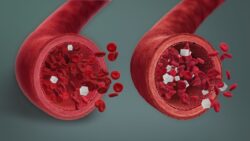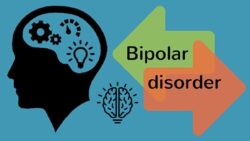Hypoglycemia is a critical condition characterized by abnormally low blood sugar levels, which can lead to symptoms like dizziness, confusion, and even loss of consciousness if untreated. For nurses, recognizing early signs and implementing timely interventions is essential to prevent serious complications. This nursing diagnosis focuses on providing a structured care plan that includes assessment, interventions, monitoring, and expected outcomes, ensuring patients receive holistic care. Understanding the rationale behind each nursing action helps improve patient safety and promotes effective management of hypoglycemic episodes in clinical settings across healthcare facilities.

Assessment and Identification of Hypoglycemia
Accurate assessment is the first step in managing hypoglycemia. Nurses must monitor blood glucose readings regularly and observe for clinical manifestations such as sweating, tremors, palpitations, irritability, and confusion. Gathering a detailed medical history, including diabetes management, recent meals, and medication use, is crucial. Nurses should also assess risk factors like prolonged fasting, excessive insulin administration, or high physical activity. Early identification allows for prompt intervention and prevents progression to severe hypoglycemia. Continuous monitoring and documentation of vital signs and patient responses ensure that care plans are individualized and effective.
Interventions and Nursing Actions
Nursing interventions for hypoglycemia aim to restore normal blood sugar levels and prevent complications. Immediate measures include administering fast-acting carbohydrates like glucose tablets or juice for conscious patients, while intravenous dextrose or glucagon injections are used for unconscious patients. Nurses must educate patients about recognizing early signs and maintaining consistent meal schedules. Close collaboration with dietitians and physicians ensures appropriate adjustments in insulin or medication regimens. Documenting each intervention, monitoring patient response, and evaluating effectiveness are essential to refine ongoing care strategies and provide comprehensive support during hypoglycemic episodes.
Expected Outcomes and Evaluation
Setting clear goals is essential for measuring the effectiveness of the care plan. Expected outcomes include stabilization of blood glucose levels, reduction in hypoglycemic symptoms, and improved patient awareness of triggers. Nurses should evaluate patient understanding of self-care strategies and adherence to dietary and medication recommendations. Regular reassessment of vital signs and glucose readings helps determine whether interventions are successful. Positive outcomes also involve minimizing hospitalizations and preventing repeated hypoglycemic events, contributing to overall patient safety and improved quality of life.
Patient Education and Long-Term Management
Education is a cornerstone of preventing recurrent hypoglycemia. Nurses should provide guidance on maintaining balanced meal plans, recognizing early warning signs, and carrying glucose sources for emergencies. Teaching patients how to monitor blood sugar levels and adjust insulin or oral medications accordingly empowers them to manage their condition effectively. Collaboration with healthcare teams to develop individualized management plans ensures that patients understand their risk factors and can make informed lifestyle choices. Continuous support and follow-up strengthen adherence and reduce the likelihood of severe hypoglycemic episodes in the long term.
| Component | Details |
|---|---|
| Assessment | Monitor blood glucose, observe symptoms, review medical history, assess risk factors |
| Interventions | Administer fast-acting carbs, provide IV dextrose if unconscious, patient education, medication review |
| Expected Outcomes | Stabilized blood sugar, reduced symptoms, improved patient knowledge, prevention of recurrence |
| Evaluation | Regular glucose monitoring, symptom tracking, reassessment of patient understanding and adherence |
FAQs
1. What is the main cause of hypoglycemia?
Excess insulin or skipped meals are common causes.
2. How can nurses quickly treat hypoglycemia?
By administering fast-acting carbohydrates or IV glucose.
3. What are the common symptoms to watch for?
Dizziness, sweating, tremors, confusion, and palpitations are key signs.
4. How can hypoglycemia be prevented long-term?
Patient education on meals, medication, and glucose monitoring helps prevent recurrence.



